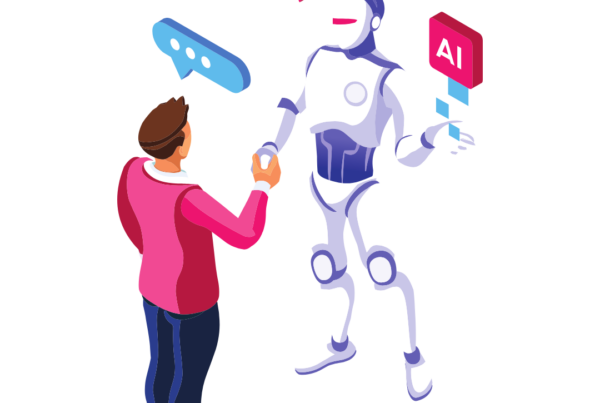Business education is in an era of significant transformation. B-schools are facing rapid digital transformation, evolving needs of students and stakeholders, and societal change. As a result, they must be flexible, innovative and adaptable. There are several major challenges that will impact business schools over the next decade. How they react to these biggest challenges, will shape their success and sustainability in the future.
In this blog we’ll break down the biggest challenges and discuss how b-schools should adapt to ensure their success and excellence in the education industry.
The Biggest Challenges facing Business Schools
Digital Transformation
The digital transformation of higher education has been ongoing for a few years. The rapid development of new technologies, increasing digitalization of systems and focus on sustainability, has transformed the education industry. Technology has the power to:
- enhance the learning experience for staff and students
- enable innovative teaching methods
- provide new skills and competencies
However, while technological advancements present many opportunities, they also present some of the biggest challenges for b-schools.

Digital transformation is one of the biggest challenges facing b–schools
To keep up with the pace of digital transformation, business schools must continually adapt and upgrade infrastructure and learning environments. B-Schools should leverage data analytics and AI, as well as investing in state-of-the-art technology and digital platforms. Adopting technology and digital transformation will enable improvements across the board – in student success, corporate governance and operations. This will give b-schools the competitive advantage they need in the future and enhance their sustainability efforts in the process.
Digital Transformation Key Considerations:
Sustainability
Sustainability is one of the biggest challenges facing the world today and it plays a huge role in the future of business schools. Issues such as climate change, poverty and social inequality highlight b-schools responsibility to educate students on ESG matters (Environmental, Social and Governance). To equip students with the skills needed to be more responsible leaders, b-schools should make sustainability and social impact an integral part of the curriculum.
Additionally, an FT report reveals that 25% of incoming b-school students want a job focused on social impact after graduation. Another recent survey revealed that 59% of students would like their institution to prioritise sustainability.
B-Schools also have rising international student numbers to consider. By offering online learning opportunities, institutions can provide students with a high-quality education and focus on sustainability. Other key considerations include investing in your digital transformation. For example, using space utilisation technology to optimise existing resources and reduce wasted emissions.
Sustainability Key Considerations:
Economic Shifts
Recent economic changes have significantly impacted higher education. Shifts in the economy have contributed to the rising cost of education and more funding restraints on universities. These represent some of the biggest challenges facing business schools today. B-schools have been coping with reduced revenues, increased costs, and uncertain demand. For most b-schools this is not sustainable, and they are looking for new ways to generate income and reduce expenses.
Some of the ways in which business schools can do this is through digital transformation. This includes leveraging online and hybrid learning, optimising resources and improving operational efficiencies. This can help b-schools improve their sustainability as well.
Many b-schools have also seen a rise in tuition fees in effort to relieve financial pressures. This unfortunately has placed more financial pressure onto students. This means more students are choosing cheaper educational opportunities, relying more heavily on support services, or turning to the job market. This exacerbates some of the biggest challenges already facing b-schools.
Economic Shifts Key Considerations:
Increasing Competition
One of the biggest challenges facing all b-schools today is increasing competition. Business schools are facing unprecedented competition from online education platforms, other business schools and the labour market. This is evident in the decline in applications for business schools in recent years. Even the most prestigious business schools are seeing declines of 15%. This highlights an urgent need for business schools to differentiate themselves, adapt to the changing education landscape and offer flexible learning options to students.
Another one of the biggest challenges facing b-schools is their changing student profile. They are now seeing more non-traditional students enrolling. For these students, online learning often presents a lower cost, more flexible study option. In addition, rising education costs are pushing students to choose work over study. With a blended learning environment, b-schools can cater to a wider range of students. They also remain competitive in the market and ensure their sustainability. Retention is another important consideration. To support the changing student body of b-schools, they should focus on their widening participation efforts.

Offering hybrid education options may help b-schools address some of their biggest challenges.
Competition from other business schools is another of their biggest challenges. B-schools should focus on the impact, reputation and value of their business education. Business schools must adopt rigorous standards to measure and communicate their performance and achievements. They should seek continuous improvement and innovation. They can do this by ensuring their offerings remains relevant and reflect changes among society, students and industry.
A key focus is how digital transformation can help to improve student success, corporate governance and operational excellence. Leveraging actionable insights and building an effective institutional data analytics program will enable business schools to stand out in the crowd and demonstrate their impact, reputation and value.
Competitive Pressures Key Considerations:
Meeting Student Needs and Expectations
Along with the other transformations impacting higher education today, changing aspirations and expectations of students are one the biggest challenges facing business schools. Students are seeking more personalised, flexible and engaging experiences in education. They also expect to learn the relevant skills and gain professional experience to prepare them for their career.
To meet these expectations, b-schools must create industry partnerships and integrate workplace learning opportunities. They must also ensure that students are appropriately supported while on work-integrated-learning.

Changing student aspirations and expectations are some of the biggest challenges facing business schools
In addition, business schools need to cater to their increasingly diverse student body. As more non-traditional students enter business education, institutions have the responsibility of ensuring they have the right support to succeed. To do this, they should prioritise proactive student support policies, that quickly identify and support struggling students. B–schools should also leverage learning analytics to enhance student engagement and the student experience.
Meeting Student Needs and Expectations Key Considerations:
Evolving Industry Demands and Employer Expectations
The skills and experience required by employers are constantly changing. This is one of the biggest challenges for business schools as they strive to keep up with the industry. For business schools, the digital transformation of curriculum is as important as the digital transformation of the institution. Employers today expect students to have a wider range of digital, data and sustainability skills. B-schools have a responsibility to provide students with the learning, experiences and sustainability education that will set them up for success.
By collaborating with industry experts, b-schools can provide students with the real-world skills they will need. Evidence indicates that students with internship experience are more employable and receive a higher salary. This kind of student and employer success can have a huge impact on institutional reputation.
Industry and Employers Key Considerations:
- Align Curriculum with Industry Needs
- Strong Links and Partnerships with Employers
- Successful Work-Integrated-Learning Programs
- Prioritise a Sustainability Focus
Conclusion: The Biggest Challenges facing Business Schools
Business schools are facing many challenges in the competitive landscape of business education today. To overcome the biggest challenges b-schools must adopt emerging technologies, focus on resource utilisation, and prioritise the needs of students and employers. By embracing the changing education landscape of hybrid learning, a more diverse student body and digital transformation, business schools will enhance their impact, reputation and value. This will enable them to differentiate themselves and remain competitive and improve sustainability in the future.
There are exciting times ahead for business education and with the right tools and strategies, business schools can thrive in the evolving environment.










